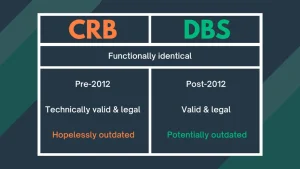
In the UK, a Disclosure and Barring Service (DBS) check is a critical tool used to help employers assess the suitability of individuals for certain roles, particularly those involving vulnerable groups. This article will focus on the Basic Individual DBS check, its importance, how to apply for it, and the different types of DBS checks available for employers and organizations.
What is a Basic Individual DBS Check?
A Basic DBS check is the simple, It discloses any unspent criminal convictions or conditional cautions that the individual may have. Unlike the other types of DBS checks, this one can be requested by the individual themselves, making it accessible to anyone. It is not limited to specific professions or sectors. This check allows individuals to provide a level of transparency when applying for jobs, volunteer roles, or even certain licenses.
Importance of a Basic DBS Check
- Ensuring Transparency: For individuals, obtaining a Basic DBS check is a way to demonstrate a clear recent criminal history, which can be critical in securing employment or volunteer positions. It allows applicants to show they have nothing to hide and can meet the trust expectations of their potential employer.
- Enhancing Employability: In many cases, employers might require candidates to have a Basic DBS check. It acts as a baseline requirement for roles where employers want to ensure they are hiring trustworthy individuals. Even for jobs where a DBS check is not legally required, having one can enhance a candidate’s appeal.
- Protecting Vulnerable Groups: Although the Basic DBS check is the simplest form, it still serves to protect vulnerable populations by ensuring that people with recent serious criminal convictions are flagged during recruitment processes.
Reasons to Apply for a Basic DBS Check
- Job Applications: Many jobs require applicants to undergo at least a Basic DBS check, especially if the role involves handling sensitive information, dealing with the public, or positions of trust such as security, delivery services, or retail.
- Volunteering: Organizations that involve volunteers, especially those working with vulnerable groups like children or the elderly, often request a Basic DBS check to ensure the individual’s background is suitable for the role.
- Personal Peace of Mind: Some individuals choose to apply for a DBS check to keep a verified record for personal use. This can be useful when moving abroad, applying for certain types of loans, or for self-assurance in any other context where a clean criminal record might be beneficial.
- Freelancers and Contractors: Independent workers in industries that require high levels of trust might also need to provide a Basic DBS check to clients or agencies to prove they are trustworthy and responsible.
Key Considerations Before Applying for a Basic DBS Check
- Purpose of Application: Before applying for a Basic DBS check, ensure you understand why you need it. While it is accessible to everyone, it’s important to apply for the right type of check based on your role or requirement.
- Accurate Information: Double-check all the personal details you provide in your application. Any errors can cause delays or even lead to a rejected application. Ensure your identification documents are up to date and valid.
- Cost: There is a fee associated with applying for a Basic DBS check. Although it is generally affordable, it’s essential to be aware of the cost and budget for it, especially if you are applying for more than one position.
- Processing Time: While Basic DBS checks are typically processed quickly, they can take anywhere from a few days to several weeks, depending on the volume of applications.
How to Apply for a Basic Individual DBS Check
- Online Application: You can apply for a Basic DBS check through the DBS website or an approved third-party organization. Individuals can initiate this check on their own without needing an employer to do so.
- Provide Personal Details: Complete the online form with your accurate personal details, including your full name, address history, and date of birth.
- Verify Your Identity: Submit proof of identity, such as a passport, driving license, or utility bill. These documents confirm that the application is genuine and linked to the correct person.
- Pay the Fee: You will need to pay a fee to process your application. The cost of a Basic DBS check is generally lower than the other types.
- Receive Your Certificate: Once the DBS has processed your application, you will receive a certificate that shows any unspent convictions or conditional cautions. This certificate can then be presented to employers or organizations as needed.
Types of DBS Checks for Employers
Employers and organizations use different levels of DBS checks depending on the role they are recruiting for:
- Basic DBS Check: This check, which reveals only unspent convictions, is suitable for roles that do not involve close contact with vulnerable individuals but still require a level of trust.
- Standard DBS Check: This more comprehensive check includes both spent and unspent convictions, cautions, reprimands, and warnings. It is often required for roles in sectors like finance, law, and government.
- Enhanced DBS Check: The most detailed check, the Enhanced DBS, includes all information from the Standard check plus any additional relevant information held by local police. It is mandatory for those working directly with children or vulnerable adults, such as teachers, healthcare workers, and social workers.
Conclusion
Basic Individual DBS check provides a simple yet effective way to ensure transparency and trust in various roles, whether for employment, volunteering, or personal reasons. By understanding how the process works and what is required, individuals can apply confidently, and employers can make safer, more informed recruitment decisions.